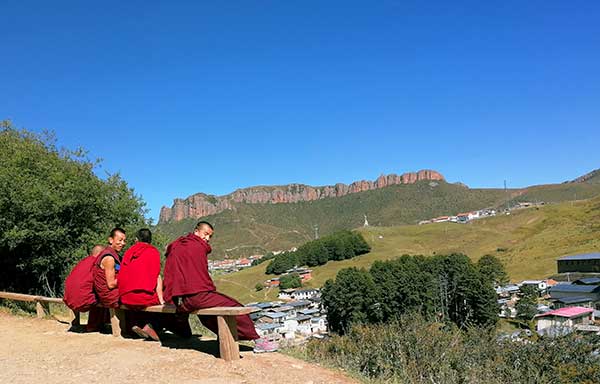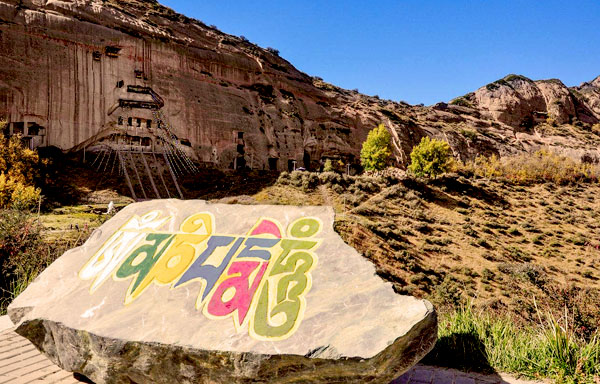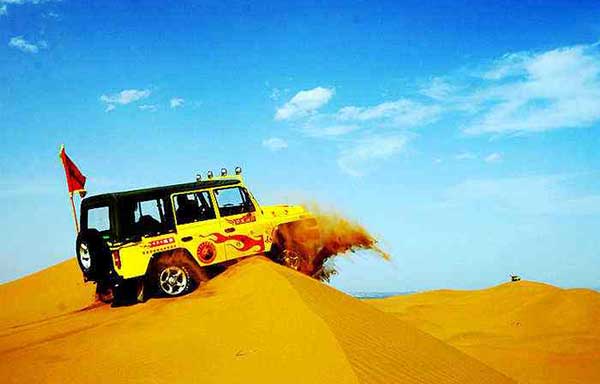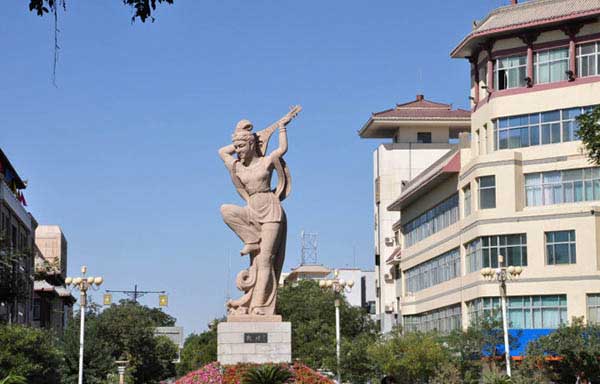- By admin
- In DunhuangKnowledge
- 2016-05-14
The history of Dunhuang
Dunhuang is a famous city in China as well as the world. It’s very hard to tell that how long history it has. But based on the potteries, stone wares and bronze wares excavated in the area, some scholars estimate that the nomadic lived along the rivers in Dunhuang as early as 4000 to 5000 years ago.
According to the historical record, the people lived here during early Qin dynasty (221BC-207BC) are the nomadic Wusong and Yuezhi. Yuezhi boasted of having 100,000 gritty fighters. They drove their neighbor- Wusong out of Dunhuang and Hexi corridor with force and controlled the vast grassland. But good times do not last long, in the early Han dynasty (203BC-176BC) another tribe intruded from Mongol Plateau, they were know as Huns or Xiongnu by Chinese. They defeated Yuezhi people, killed their king and drove the Yuezhe as far as Amu Darya in Mid Asia. The Huns controlled the corridor and became it’s dominator.
To the east of the Hexi corridor there laid the Chinese empire – Han. In order to defeat Huns and control the corridor, the emperor Wudi of the Han sent a diplomat Zhangqian to Mid Asia. His mission was to find the Yuezhi people and build alliance with them. It was the first time that Chinese people get to know the world west of Pamir’s. Zhangqian collected intelligence for the fight and made an important report to emperor Wudi. In 127BC and 121BC the emperor dispatched 2 important generals with soldiers and launched battle against Huns on the Mogol plateau and in the corridor. The Huns were finally defeated and dove to the west. The emperor Wudi established 4 prefectures along the corridor. They were Wuwei, Zhangye,Jiuquan and Dunhuang. Dunhuang was the last prefecture and the west most one. To the west of Dunhuang two passes were built to serve as the western gates and frontier defense post of Han Empire. The great wall was built along the corridor to screen the nomadic to the north from coming into China. The emperor Wudi encouraged Chinese businessmen to trade with countries to the west. Foreign traders were welcomed and well treated by Chinese government. The trade on the Silk Road came to a golden time.
After the great unification of Han dynasty, China again fell into destructive civil war (Wei and Jin Dynasty). Especially in the central China the old country was overthrown and replaced by several kingdoms. The kingdoms fought ceaselessly with each other. Numerous people were killed and forced to leave their home. Dunhuang, for its special location, avoided a lot of political disaster. A lot of people, among them there are commons as well as big clan and businessmen, migrated from central China to Dunhuang, Which not only boomed the local economy but its culture.
China was reunified in Sui dynasty (518-618). The stable central government and favorable policies made trade on the Silk Road recovered quickly. Dunhuang was valued by government for its important location and an international trade fair was held here in the Sui dynasty..
After the short Sui dynasty, Tang (618-907) built up the most powerful Empire of the world. The western Turks - the major barrier lay between east and west were defeated and cleared out. The trade on the Silk Road was entering the most glorious times. Benefited by the trade on the Silk Road, Dunhuang reached a climax of its development. It was not only a military center that most military operation to the west based on but a custom and trading center.
With the rise of Tibetans in mid Tang dynasty, the Tibetans gradually controlled the western region and tried to attack the Hexi corridor (727). Later the civil strife of Tang broke out in 755 and the central government maneuvered the soldiers stationed in Hexi and Dunhuang to central China for rescue. This gave the Tibetans good opportunity to conquer the corridor and Dunhuang. So Dunhuang was under the dominant of Tibetans for 67 years (781-848). The Chinese Han and other ethnic groups in Dunhuang had a miserable life and suffered great insult from Tibetans. In 848, a local squire named Zhangyichao, organized angry peasant and people to revolt against Tibetans. In the end, Tibetans were defeated and cleared out of Dunhuang. Zhangyichao led the army of victory westward and recovered the rest 10 prefectures occupied by Tibetans in 3 years. Zhangyichao brought with him the good news and maps of those recovered states to meet the emperor in Changan. The emperor was very glad and appointed Zhangyichao as the military governor of Dunhuang.
In the next 191 years, Dunhuang was under the government of Zhangyichao’s family and later Cao’s family. During the time the governors well developed the local economy and military power. They tried to get along with powers around Dunhuang.
With the collapse of Tang Empire, the declining Chinese economy can’t afford expensive exotic merchandise anymore. In the Song dynasty, the economic weight of China gradually moved to the south and the development of shipping technology finally resulted in the decline of trade of the Silk Road on land. Dunhuang gradually lost its former glory.
In 1036AD, the tangut people conquered Dunhuang and later Mongolians vanquished Western Xia and controlled Dunhuang.
In Ming dynasty of 1403AD, the government deserted Dunhuang and the land west of Jiayuguan pass. All the Chinese people were moved to the cities east of Jiayuguan pass.
For over 300 hundred years, Dunhuang was looked as wasteland, only a few nomadic people still herded animals here.
In the Qing dynasty of 1715AD, the emperor Kangxi reclaimed Dunhuang and Xinjiang area. Thousands of Han family and army men were migrated to Dunhuang by the Qing government.
In 1979, Dunhuang was opened up to the world and in 1986 Dunhuang was nominated as historically and culturally famous city of China.
Related destinations
Why Choose Us?
We are the top Silk Road tour operator based in Dunhuang, China. We focus on providing well designed Silk Road China Tours with resonable price and thoughtful service.
- Easy & carefree booking
- The best value
- Great travel experience
- Locally operated
Hot Tours
-

6 days Gansu tour to Binglingsi, Xiahe and Langmusi
Tour type : Private tour Price : from *** Destinations : Lanzhou - linxia - Xiahe - Langmusi - Hezuo - Lanzhou -

12 Days Gansu Highlights Tour
Tour type : Private tour Price : from *** Destinations : Xian – Tianshui – Lanzhou – Xiahe – Langmusi – Hezuo – Zhangye – Jiayuguan - Dunhuang -

10 Days Silk Road Classic Tour
Tour type : Private tour Price : from *** Destinations : Xian - Zhangye - Jiayuguan - Dunhuang - Turpan - Urumqi -

5 Days Zhangye - Alxa youqi Highlights Tour
Tour type : Private Tour Price : from *** Destinations : Zhangye - Alax youqi - Zhangye


